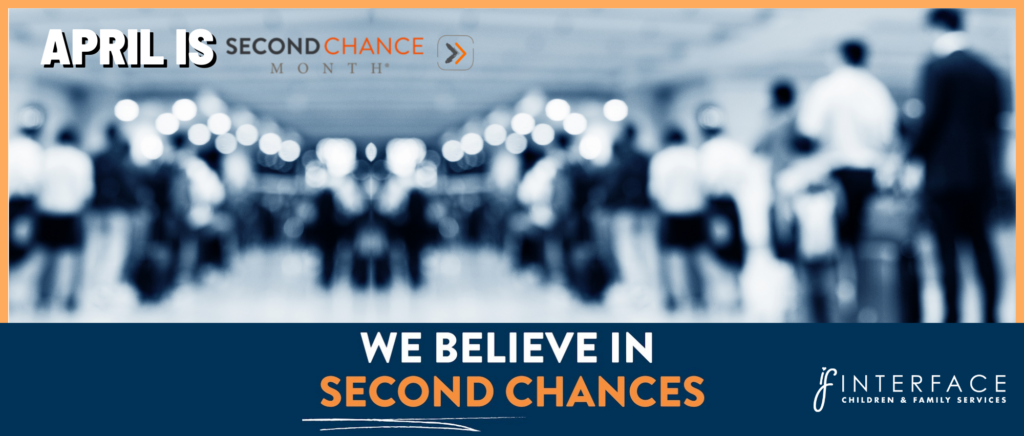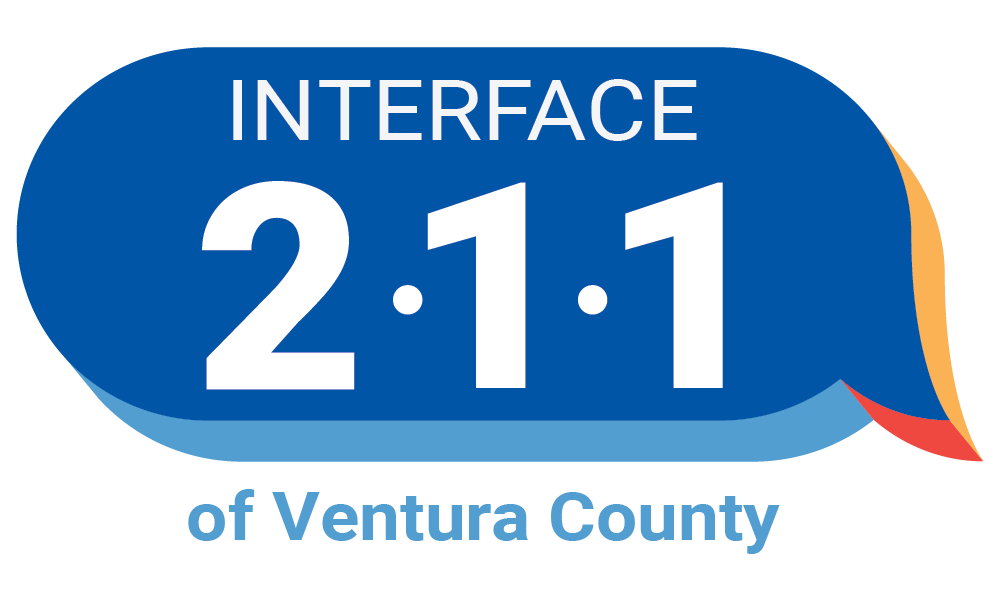
April is Second Chances Month, and members of Interface’s Justice Services team are sharing reflections about the importance of giving someone a second chance.
Deirdre Smith, Director of Justice Services- Second chances are something very personal to me. In 2002, I was incarcerated for a felony and completed a 1-year sentence. I was young and had my entire life left to live. I can recall sitting in a parole board meeting and being asked by the panel what my goals were once I went home. I responded that I wanted to go to school and get a higher education. Three white women on that panel launched into all the reasons that I would not ever achieve that educational goal with a felony record. I BELIEVED THEM. When I was finally able to go home, I told my new probation officer I wanted to enroll at the local community college. The probation officer said that I was required to go to work and that I would not make it to school because of my criminal record. Again, I BELIEVED HER. I went to work at a minimum-wage job so that I could pay my restitution. The next year I became pregnant with my first child. Most of my paycheck went toward childcare expenses, and I quickly realized that I was working just to afford to go to work. I felt helpless. 
Then one day I came across a quote that I felt in my soul. M. Scott Peck said, “The truth is that our finest moments are most likely to occur when we are feeling deeply uncomfortable, unhappy, or unfulfilled. For it is only in such moments, propelled by our discomfort, that we are likely to step out of our ruts and start searching for different ways or truer answers.” I recognized that I was very, very unhappy and deeply, deeply uncomfortable. This propelled me to consider what I needed to do to give my daughter a better life. I took an enormous leap of faith, quit my job, enrolled in Santa Barbara City College, and intentionally put myself in very uncomfortable places to further my education and my growth. I finished my first semester at college and passed every single class and that’s when I began BELIEVING IN MYSELF. I was learning and growing and discovering amazing things about myself that had been suppressed my entire life. I had natural leadership skills, and I sought out ways to use them. I joined Student Government and took on leadership roles in campus clubs, and I thrived. I thrived so much that I left an abusive relationship and learned that I could do anything I set my mind to, despite a felony record.
I graduated from Santa Barbara City College with several AAs and went on to get my BA at California State University Channel Islands. I loved the educational experience so much that I decided to shoot for the moon, and I got my master’s degree in clinical psychology from California Lutheran University. That fancy piece of paper was my way to combat my felony record, to prove to people that I am not willing to be defined as a felon. I am a woman, a mother, an academic, an athlete, an executive, and so much more than the choices I made in my past. That piece of paper opened countless doors for me. I have been given many second chances, and perhaps the most valuable was to become a manager in the jail where I was once incarcerated. I was teaching and making a difference in a traumatic and difficult place. I was able to share my success story and give hope to other incarcerated people so that they too could understand that they are worthy of success and happiness. We are not defined by our worst choices, and we deserve a second chance. I am living proof of this.
Heather Garcia, Justice Services Program Manager- Millions of Americans with criminal histories face significant barriers to success when trying to rejoin their community and are frequently left without the opportunity to escape the shadow of their criminal records. They are not only faced with social stigma from old friends and neighbors, but also experience more than 44,000 legal barriers that impact their ability to start a business, secure employment, find a suitable place to live, and live as contributing members of their local communities.
In many instances, these barriers will follow them for a lifetime. Through individual action, research, and reform, we can advance second chances and ensure stronger communities, economies, and families.
I have found that at the end of the day, people want to be treated with dignity and be allowed to reach their full potential. After making the wrong choices, people often want the chance to make amends and rebuild what is broken. Second Chance Month is a nationwide campaign to unlock opportunities for the tens of millions of Americans with a criminal record who are looking for a second chance. On behalf of Interface’s Justice Service team, we hope that you will join us in supporting individuals as they work to make amends and contribute to their communities.
“America is a place of dreamers, second chances, and redemption. Millions of Americans in this country have criminal records, and those who have paid their dues and served their time deserve the opportunity to be contributing members of society. … With Second Chance Month, we look to shine a light on ways to unlock opportunities for those in search of new life.”
Tony Cárdenas, California Congressman
Jennifer Lopardo, Justice Services Program Manager- A single caring adult who believes in second chances can make all the difference in a young person’s life. As someone who has fallen in love with the Justice Services field, my passion for youth and their potential to positively impact our society knows no bounds. I believe that every young person has the potential to thrive, but I also know that sometimes, we make mistakes along the way. As a community, it’s our responsibility to help guide youth back on track when they stumble.
That’s why I’m thrilled to support Second Chance Month through my work on the Justice Services team at Interface, an organization that is committed to helping both youth and adults restore their lives and work towards safer, healthier futures where everyone can thrive Through our Second Chances grant for youth, we provide impactful intervention services that not only benefit the individual but also their families and communities. By offering a path forward for these young people, we can create a positive ripple effect that lasts for generations.
I hope that Second Chances Month will allow people to see youth in our community as people who are full of hope and potential – youth who are doing their best to move forward in a positive direction, but who might need a little help along the way.
Learn more about Interface Justice Services and how you can help youth in our community to be safe, healthy, and thrive by visiting us at www.icfs.org





